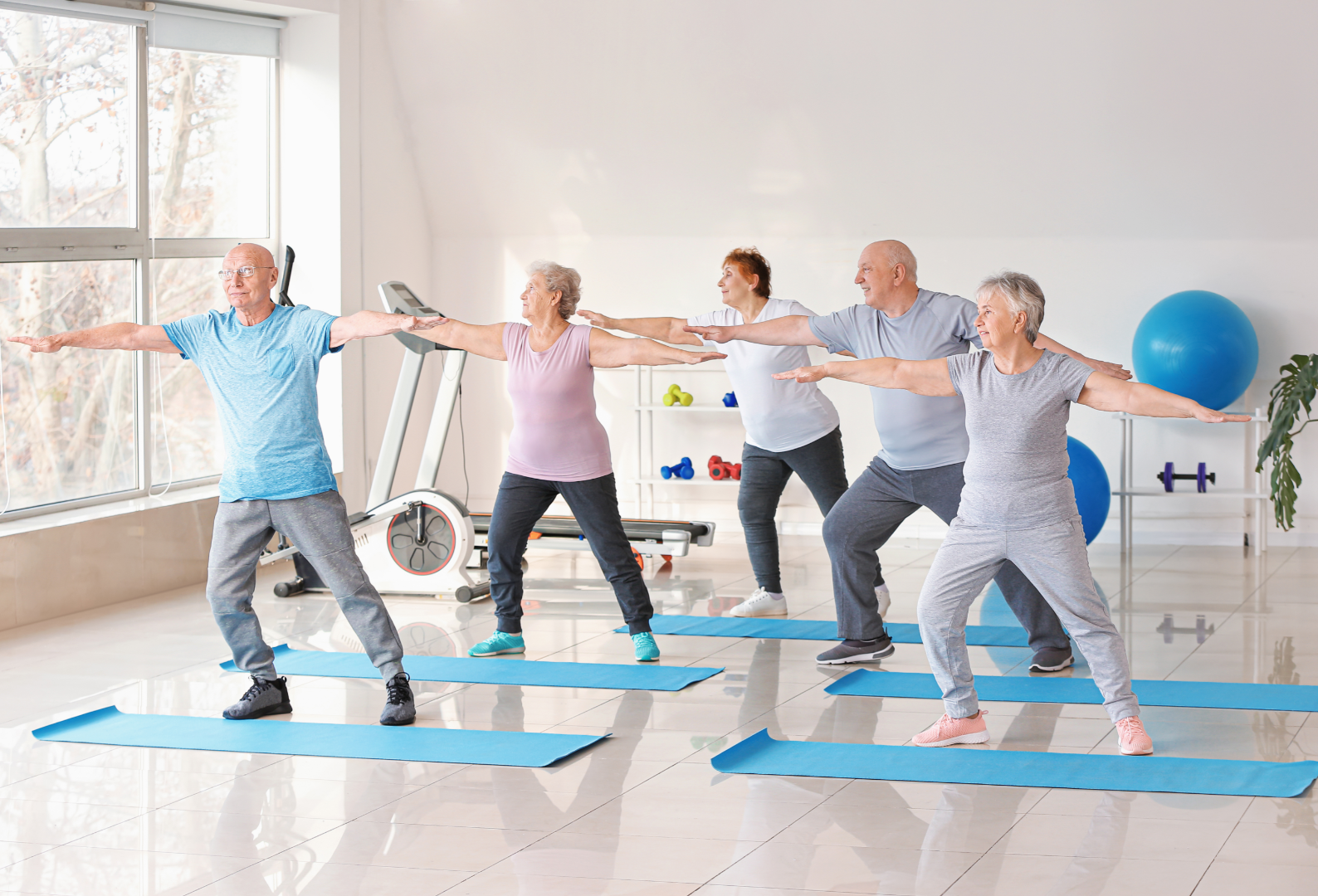Participation and completion of a high quality Cardiac Rehabilitation programme has been shown to increase life expectancy by up to five years
About Cardiac Rehab

Support to Empower after a Cardiac Event
Cardiac Rehabilitation in Ireland
Rigorous scientific evaluation continues to prove high quality Cardiac Rehabilitation is a highly effective and well-established model of care for the secondary prevention of cardiovascular disease which still remains the leading cause of death globally and in Ireland.
Cardiac Rehabilitation was first established in Ireland in 1978. Cardiac Rehabilitation is recognised as one of the most evidence based programmes for supporting self- management of chronic disease (HIQA 2015)
.
Those who benefit from Cardiac Rehabilitation include those with a history of:
Myocardial infarction (heart attack),
Coronary artery bypass graft surgery (CABG),
Percutaneous transluminal coronary intervention (PTCI)/ or coronary stenting,
current stable angina pectoris,
Heart valve repair or replacement, Heart transplant, Heart Failure
-
 26%
26%Cardiac mortality benefit

What we do
Cardiac Rehabilitation is a class 1A recommendation with exercise therapy consistently identified as a central element (AHA, ESC).
Cardiac Rehabilitation aims to improve physical and emotional health and quality of life for patients following a cardiac event.
Cardiac rehabilitation includes:
- An individualised exercise prescription to improve cardiovascular fitness safely.
- Education about heart disease along with counselling on ways to stabilize or reverse heart disease by improving risk factors. Topics include –
- Smoking Cessation
- Lowering Cholesterol
- Controlling High Blood Pressure
- Encourage Healthy Eating Habits
- Weight Loss/Control
- Improve/Manage Diabetes
- Increasing Physical Activity
- Improve Psychological Well Being
Those who benefit from Cardiac Rehabilitation include those diagnosed with:
- Myocardial infarction (heart attack)
- Coronary artery stenting/ intervention (PCI)
- Coronary artery bypass graft surgery (CABG)
- Current stable angina pectoris
- Heart valve repair or replacement
- Heart transplant
- Stable and optimally managed Heart Failure
Cardiac Rehabilitation can be divided into four distinct phases.
This phase relates to the period of hospitalisation following an acute cardiac event. During this phase patients are given support and information about their diagnosis, their own specific risk factors, medications, work/social issues and driving guidelines. Involvement of spouse/ partner and family is facilitated and encouraged. This phase also includes early mobilisation and discharge planning.
This phase encompasses the immediate post discharge period, which is typically a period of two to six weeks. It focuses on health education and resumption of physical activity. The structure of this phase may varies from centre to centre. It may take the format of telephone follow up, individual or group education sessions. This contact facilitates ongoing education and exchange of information and emotional support.
This phase incorporates exercise training in combination with ongoing education, psychosocial and vocational interventions. Titration of medication to optimum doses and risk factor modification occur such as blood pressure and Cholesterol monitoring. The duration of phase 3 may vary from six to twelve weeks, with patients required to attend a CR programme two to three times weekly for structured exercise, education and other lifestyle interventions.
This phase constitutes the components of long-term maintenance of lifestyle changes, once the patient has completed the structured Phase 3 programme. This may be facilitated in a local leisure centre or community hall and the focus is on indefinite exercise and other lifestyle modifications. Alternatively individuals may prefer to exercise independently and Phase 4 may involve helping them set a safe and realistic maintenance programme.

- Currently there are 36 Cardiac Rehabilitation centres in Ireland – find a cardiac rehabilitation programme near you by searching the IACR programme directory
Benefits of Cardiac Rehabilitation

Improved Health Outcomes
Robust clinical evidence demonstrates that participation in a high quality Cardiac Rehabilitation programme is associated with improved health outcomes. As a result Cardiac Rehabilitation is a Class I recommendation from the European Society of Cardiology, the American Heart Association and American College of Cardiology, with exercise therapy consistently identified as a central element Based on meta-analyses, mortality is reduced in individuals that partake in high quality Cardiac Rehabilitation
- A reduction in cardiovascular mortality by 26%.
Improvement in Aerobic Exercise Capacity
An improvement in exercise tolerance is one of the most clearly established benefits of Cardiac Rehabilitation. This applies to patients with a wide variety of clinical presentations including angina pectoris, myocardial infarction, patients following CABG surgery and PCI. Substantive gains in health can be achieved with relatively modest increases in physical activity. Small increases in cardiorespiratory fitness are associated with considerably (10% to 30%) lower adverse cardiovascular event rates. (AHA 2016)
An increase of 5 – 10% in cardiorespiratory fitness levels with improved flexibility and muscular strength and endurance is expected (Piepoli et 2014)
Reduction in Cardiovascular Risk Factors
Educational interventions are at the core of the delivery of effective Cardiac Rehabilitation. The specific risk profile of each individual is evaluated and activities are coordinated to support changes in lifestyle behaviour. Cardiac Rehabilitation has been shown to lower LDL cholesterol, increase HDL cholesterol (if exercise is maintained), assist in weight control in conjunction with a healthy diet, help regulate blood sugar levels and assist in maintaining a normal blood pressure.
Reduced Hospital Readmisson Following Event
Consistent research findings associate participation in Cardiac Rehabilitation with lower frequency of hospital admissions and reduced length of stay. Anderson et al (2016) suggest an 18% reduction in readmission rates.
Improvement in Myocardial Perfusion
A number of studies have demonstrated that Cardiac Rehabilitation significantly increases myocardial blood flow and myocardial perfusion in patients with coronary heart disease.
Improvement in Symptoms
Cardiac Rehabilitation has been shown to improve symptoms of angina in those with coronary heart disease and decrease symptoms of heart failure in those with left ventricular systolic dysfunction.
Improved Psychological and Psychosocial Well-being
Cardiac Rehabilitation programmes have been shown to improve psychological well being, with significant decreases in anxiety and depression. These benefits are gained with exercise training combined with integrated stress management and psychological support delivered by appropriately trained professionals. Better psychological well-being is associated with lower blood pressure, a mover favourable lipid profile, a lower prevalence of metabolic syndrome, a lower likelihood of smoking, increased exercise levels and greater adherence to a heart healthy diet. Improving psychological wellbeing is key to optimising health outcomes.
Useful Links
Irish Nurses Cardiovascular Association
Northern Ireland Chest Heart and Stroke Association
CR Participation Optimises Recovery

Testimonials
"The programme works if you commit to doing it. The staff is helpful and there to assist in any way they could. I worked at my own pace and did not feel pressured to just perform, and move on. I got so much out of the programme and feel better than I have in years"
Patricia
82 Years Old, Dublin“After surgery I was anxious about any activity that would stress my heart. Cardiac Rehab gave me back my confidence. I knew if I made changes I could enjoy life again. The team was very encouraging. They monitored my heart beat, blood pressure, and blood sugar levels throughout exercise. I recommend Cardiac Rehab. Without rehab I would probably be sitting in my chair afraid to move.”
John
58 years, old, Cork" I thought Cardiac Rehab was for old people and I didn't need it because I was young and exercised regularly. My wife persuaded me to go. I have just completed my programme and so glad I did it. For me it was a life changing and life saving decision."
Gary
44 years old, LongfordIACR - committed to maintaining an excellent standard of care informed by international best practice.



